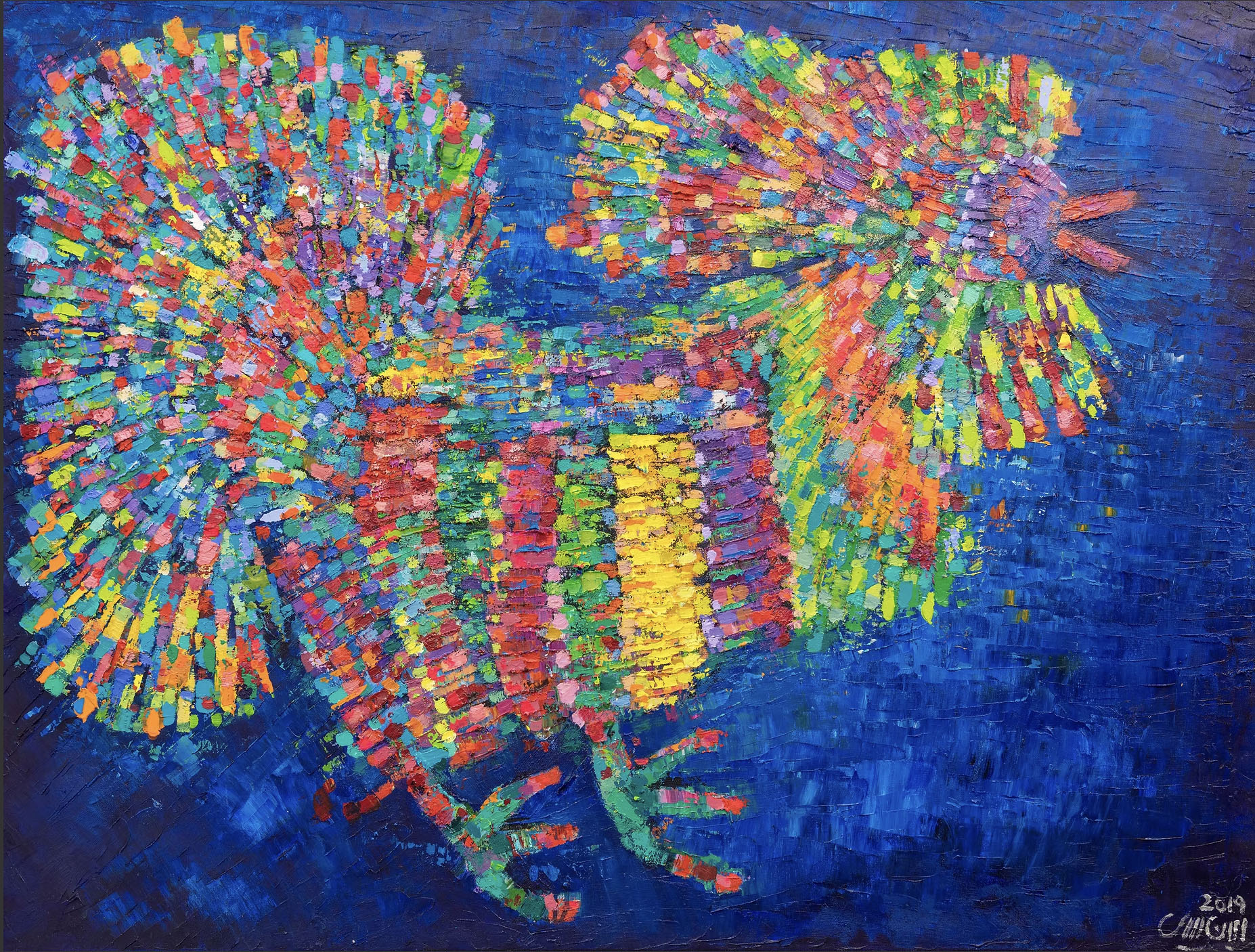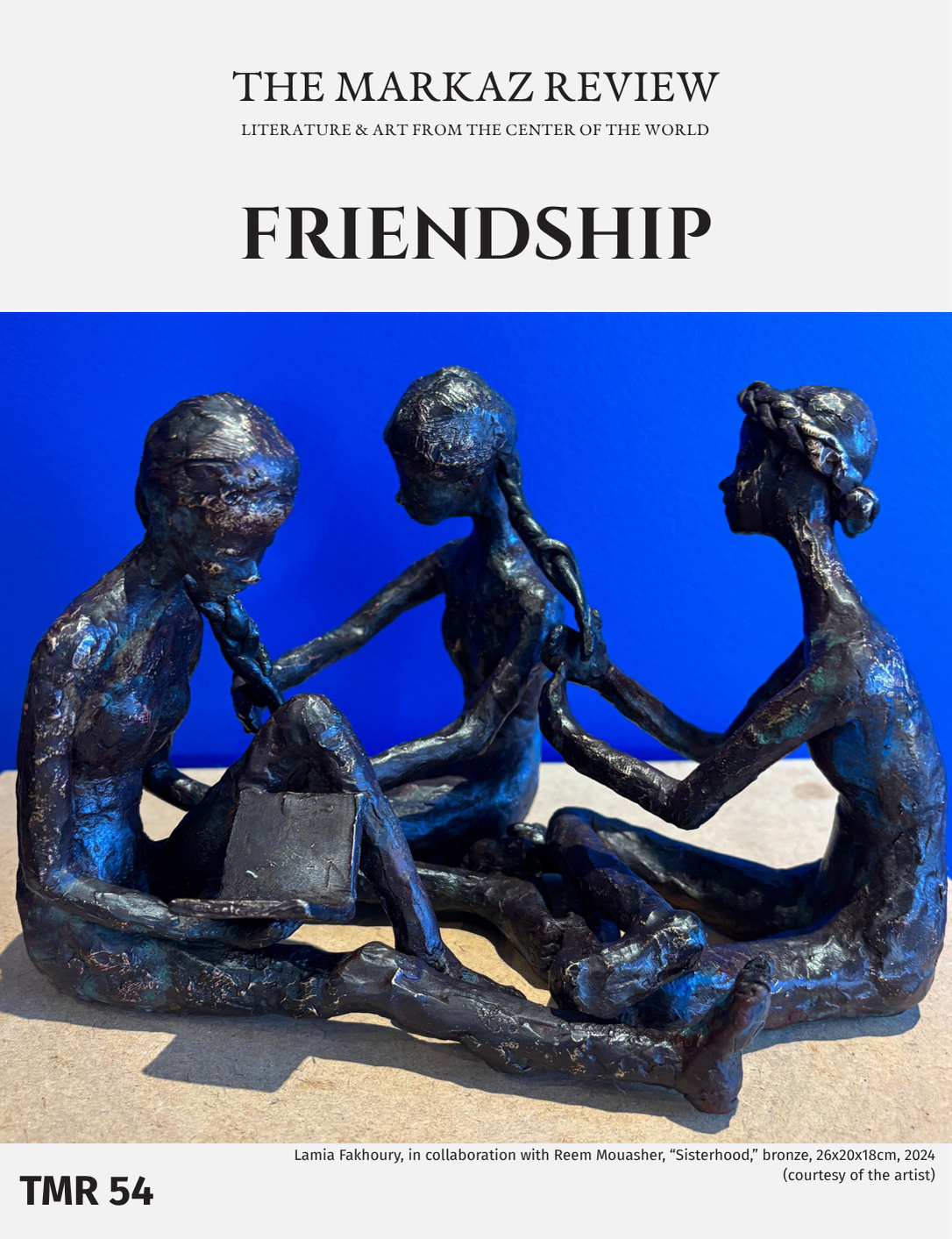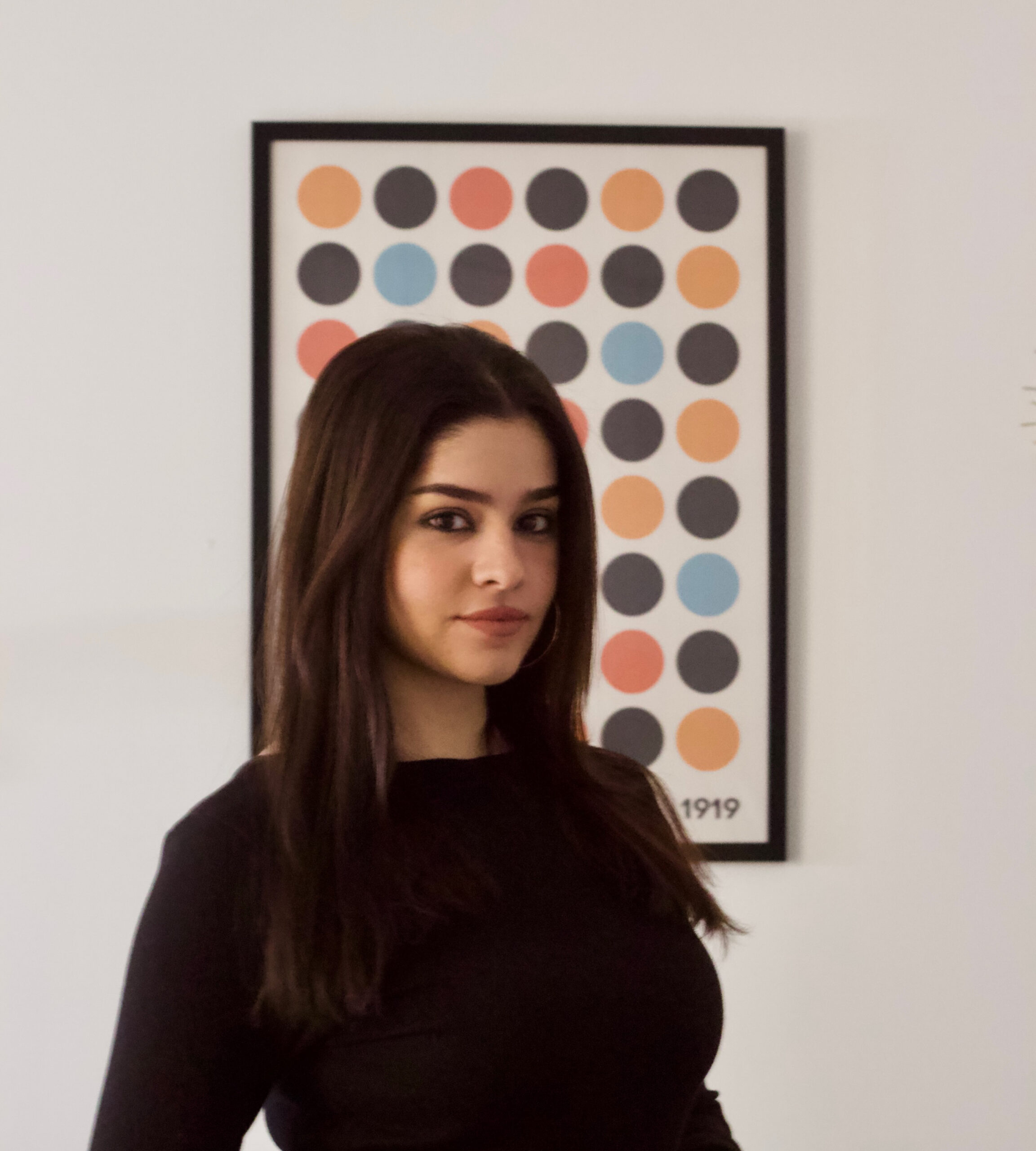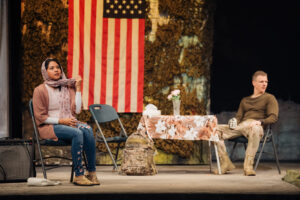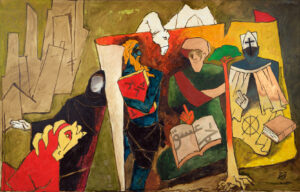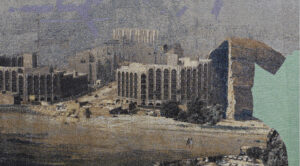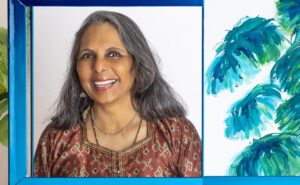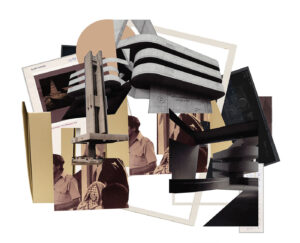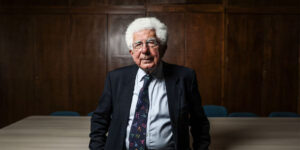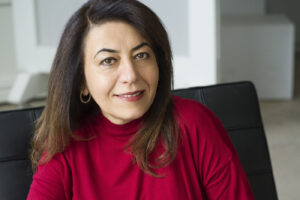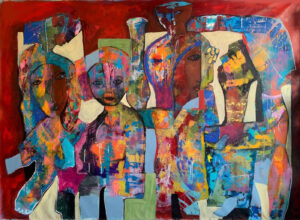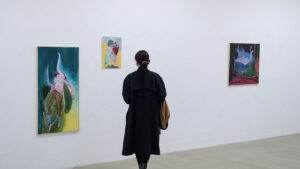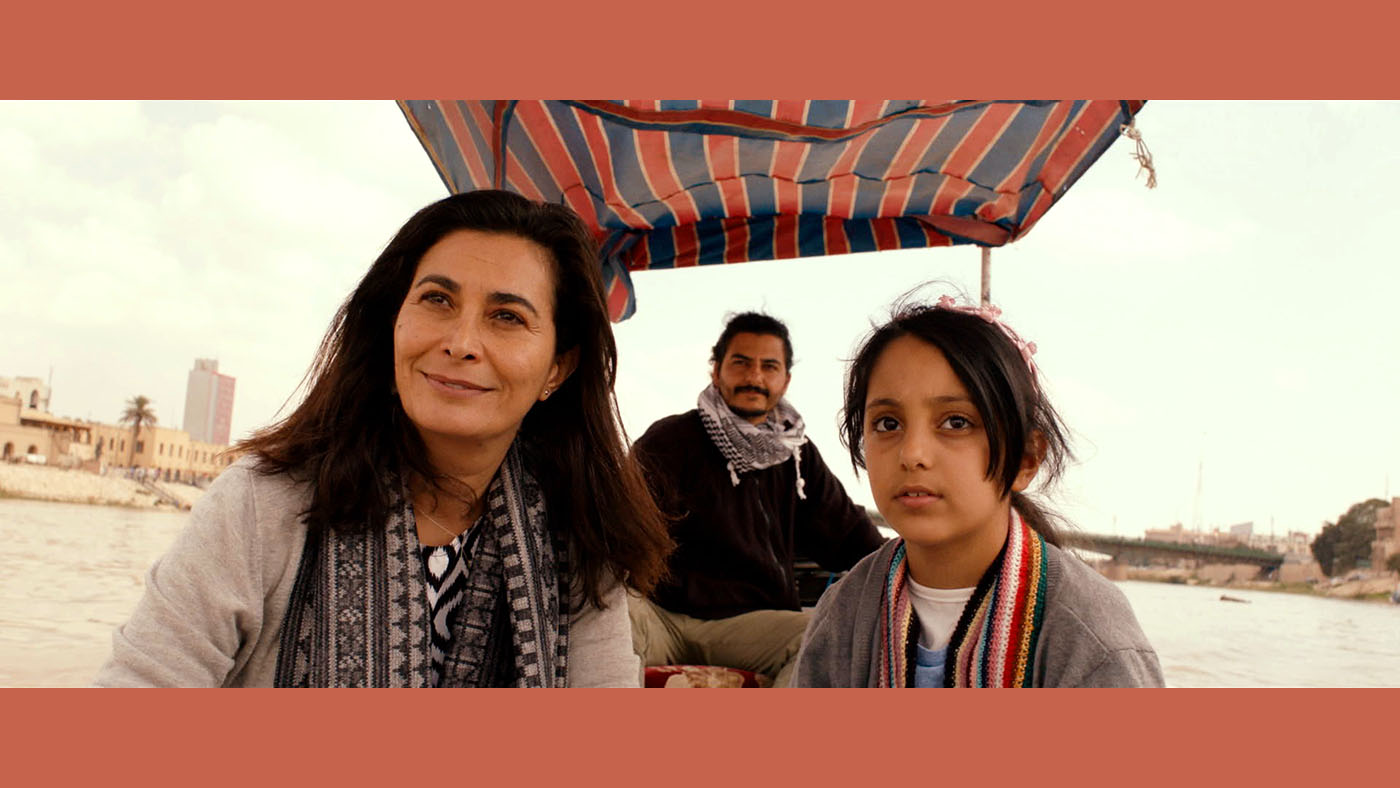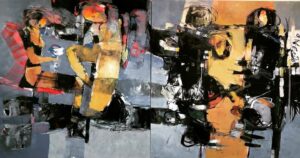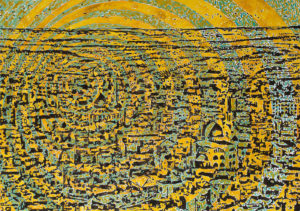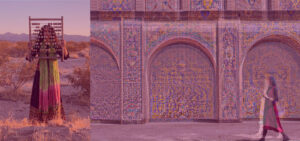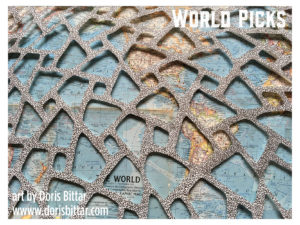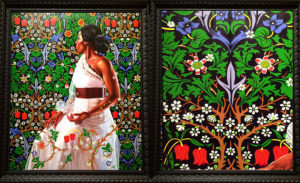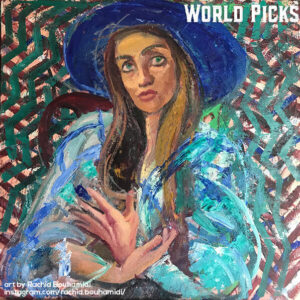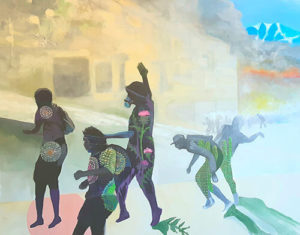A reflective short story that explores the bonds of spectral friendships, shaped by longing and a deep nostalgia for home.
I had forgotten what my tarot card-reading friend once told me — until this morning.
Despite my restless mood, I went out for a run and decided to take a different route. I turned onto a side road that led to a quiet street lined with picturesque Bauhaus-style villas. The cold weather didn’t bother me. Just looking at the sunlit houses warmed me somehow. It was six in the morning, and the neighborhood was still, yet behind the large windows of the houses, families were already stirring — eating breakfast, chatting. People jogged past me or walked their dogs. The only colors on the street were winter’s stark black and white. Snow was swept into piles along the sidewalks, forming a glowing, jagged mountain range.
I lost track of time. I let my feet lead me, drifting into another neighborhood. This one had large wooden houses, more traditional in style. The scent of burning wood filled the air. The street was silent except for the sound of an occasional car passing by.
As I strolled, I amused myself by looking at house numbers: 27, 28, 29… Then I saw it. A fox. It stood perfectly still beside a house — like a statue. No movement, no fear. That fox reminded me of what my friend had said weeks earlier on New Year’s Eve, during one of her tarot readings. She had laid three cards in front of me. One showed two sleeping foxes. She predicted my life would be transformed by someone who loves watching animals. From them, he would learn everything about life.
The fox still hadn’t moved. I walked closer. It turned its head and followed me with its eyes. I crouched in front of it. Its pale apricot fur glowed in the winter light. Despite its tiny nostrils, I could see thick vapor puffing from its breath. Its eyes sparkled like a child’s.
I couldn’t resist. I removed my glove and extended my hand. To my surprise, its paw reached out too — resting on my palm. It was warm and thin, rough with hard bumps. I felt a mischievous thrill. The world felt beautifully strange again, ready to be rediscovered in moments of monotony.
Suddenly, I heard children laughing nearby. A car engine started. The fox pulled its paw away and darted off. I followed it as it slipped into a neighborhood with stone walls. I’d never been there before, even though I’d lived in Kulosaari for three years.
Then I saw him. A teenage boy sitting on a large blue plastic box, cleaning his nails with a twig. I knew that boy.
It was Haidar.
He looked exactly the same as the last time I saw him. Same clothes. Same wound on his left foot. He’d gotten it years ago during my father’s annual exhibition in Baghdad. My father was busy hosting guests, while Haidar and I explored the exhibition’s backyard — full of scrap wood, paint cans, stained glass. We decided to help by hauling debris to the dumpster. But when Haidar climbed through a hole in the fence with a piece of wood, he cut his foot badly and fainted from the sight of his own blood.
“Haidar?” I asked.
He looked up, grinning. “You’re finally here! I’ve been waiting for you.”
“How long?”
“Twenty years.”
“Twenty years? But you haven’t grown up.”
“That’s right. I didn’t grow up because you didn’t wait for me. You grew up because I waited for you.”
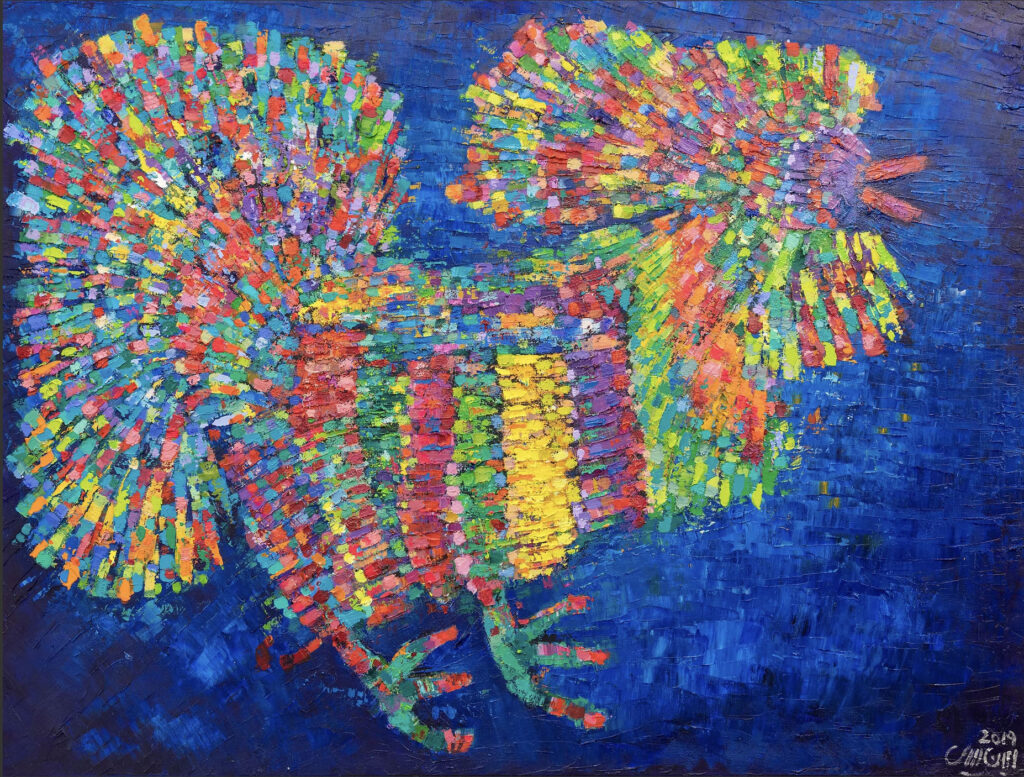
I stared into his green eyes. I remembered the first time I’d seen them, over twenty years ago. I had lost my Barbie doll — the first one I ever owned — and cried for days. Rumors were going around that the new neighbors were thieves, stealing toys, spoons, even flowers. I knocked on their door to get my doll back. A brown-skinned boy with green eyes opened it. He looked surprised. I barged past him and into the family garden, where twin girls were playing.
Their mother came out and gently asked what I wanted. Through tears, I told her. She scolded the twins — Yara and Lara — and they returned the doll. But not before dipping it in the dog’s urine bowl. That’s how my friendship with Haidar began. He later found me at school, offered advice on cleaning the doll with water and salt, and confessed his twin sisters always caused trouble.
The blue box he sat on now was one my father used to give out after finishing the weekly glue supply — neighbors used them to store rice or flour.
Haidar grinned. “Do you still want to see the peacock from Raed Al-Charkhachi’s house?”
My heart lurched. His words pulled me out of the life I knew — my life in this city, with its long silences, snow, and routines. I remembered Baghdad. I remembered that legend about the peacock. How could I forget?
One Friday, Haidar had whispered to me: “Raed sold the small golden statue in their sitting room and bought a peacock. A real one. But he keeps it on the roof, so no one knows. Look for the iron cage next time you walk by.”
I believed him. The next day, I saw movement in the rooftop cage. Haidar promised we’d visit next Friday. But we never got the chance. That week, we fled the country after receiving a letter with a blood-stained bullet.
“Haidar,” I said now, “I grew up. I don’t know if my childhood life was even real.”
Then I shifted, trying to regain control of my emotions.
“I don’t even like animals. I don’t have time. I have work.”
I pitied the boy in front of me. I wanted to open up to him. But something held me back. I’d grown up.
I told myself that what had happened was either a hallucination or an excess of nostalgia, and that I had to face it sooner or later. To avoid the whole matter, I changed my morning running route to the other side of Kulosaari, heading toward the road that leads to the Mustikkamaa Island. The terrain was rougher, and there were more runners, but the sea made me feel lighter. My sister had shown me a TikTok tip: choose a color before your walk, try to spot it while walking to help you stay present. I picked white. Easy enough — snow, birch trunks, the frozen sea, all white.
I rested on a rock, watching crows cawing in the trees.
A man sat next to me. He wore a gray suit and a blue tie — fresh from a meeting, not a jog. His large nose hung beneath his sunglasses. He didn’t look at me.
“People wait on me every day,” he said. “Embassy staff, cleaners, kids, wife, house loans, emails. That’s why I’m old. When people wait on you, they drain you. Wisdom from a man twice your age.”
Strangely, I had heard something similar just days ago — from someone half my age.
I didn’t respond.
Then he said, “Salvador Dalí once said: memories are like diamonds. If they’re too shiny, they’re fake.”
His face remained turned toward the sea.
I stood up. He followed. I wasn’t afraid — just curious.
As we walked, he suddenly asked, “Do you still like playing football?”
We stopped.
He took off his sunglasses. Green eyes.
Haidar.
But older. Wrinkled. Serious.
Again, I was pulled into a memory. I used to play football with the neighborhood kids. Haidar taught me to dribble, to pass. But everything changed when I turned eleven. I became obsessed with pop stars, accessories, and high heels. My mother bought me a fake pair — plastic, with just a slight lift. I wore them everywhere, even in the shower.
One day, I walked out in my new heels, fully accessorized, to borrow beans from a neighbor. The sound of my heels made the boys stop their game. Haidar looked at me and ordered everyone to make a path. When I passed, he said, “You are a beautiful girl.”
He returned to the game. That was the last time we saw each other.
Now, standing beside him as an adult, I noticed the blue glue box in the back seat of his black Mercedes.
“Do you always carry it?”
“Everyday. Everywhere.”
Maybe it was the only thing that reminded him of me. We’d never had the time to exchange gifts. We spent time together, at school and playing in the street in the evenings. There was no need for gifts; we thought that this was simply life. That we were here, and nothing would change.
I knew I shouldn’t get in that car. I turned away, searching once more for white objects in the snow.
That night, I cried in the kitchen. It was like a box had been opened inside me — one full of joy I forgot existed.
The next day, I called in sick. My body ached like I’d been through surgery. I returned to the old route, following the fox’s path to the stone neighborhood.
Haidar was there again, sitting on the blue box.
“You came back!” he said, smiling wide.
I sat next to him. “Do you want to be an ambassador when you grow up?”
“What’s that?”
“Someone in a suit and tie. Like the men on the news.”
He laughed. “No. I want to be a football player. And so do you.”
“All my friends are….,” I started, hesitating. “They’re all like you. Dark-skinned, green-eyed, obsessed with football. Rebellious.”
I broke down. Haidar dropped the twig he was holding. His blue T-shirt had a golden rooster on it — the emblem of the French national team.
He asked, “Why are you crying?”
“Because we both lost something precious.”
His face remained blankly foolish.
“Don’t cry. I haven’t lost anything. I have a surprise for you.”
He said this, then tilted the large blue box, opened its lid, and overturned it. From within, the bloodied corpse of a massive peacock tumbled out. The stench was foul, and its colors were muddled, distorted by the grotesque disfigurement of the creature.
Until this moment, I have no explanation for what happened — except that I must have lost either my old life or my new one. Or perhaps I simply lost my understanding of life altogether.



